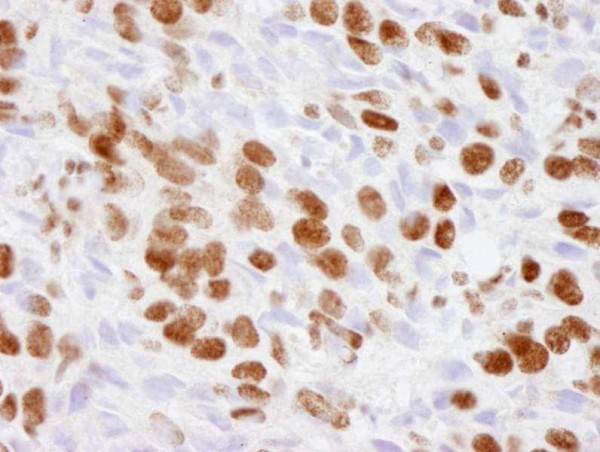Cookie preferences
This website uses cookies, which are necessary for the technical operation of the website and are always set. Other cookies, which increase the comfort when using this website, are used for direct advertising or to facilitate interaction with other websites and social networks, are only set with your consent.
Configuration
Technically required
These cookies are necessary for the basic functions of the shop.
"Allow all cookies" cookie
"Decline all cookies" cookie
CSRF token
Cookie preferences
Currency change
Customer-specific caching
FACT-Finder tracking
Individual prices
Selected shop
Session
Comfort functions
These cookies are used to make the shopping experience even more appealing, for example for the recognition of the visitor.
Note
Show the facebook fanpage in the right blod sidebar
Statistics & Tracking
Affiliate program
Conversion and usertracking via Google Tag Manager
Track device being used

| Item number | Size | Datasheet | Manual | SDS | Delivery time | Quantity | Price |
|---|---|---|---|---|---|---|---|
| IHC-00028-T | 10 µl (1 µg) | - |
2 - 8 business days* |
178.00€
|
|||
| IHC-00028 | 100 µl (10 µg) | - |
2 - 8 business days* |
668.00€
|
If you have any questions, please use our Contact Form.
You can also order by e-mail: info@biomol.com
Larger quantity required? Request bulk
You can also order by e-mail: info@biomol.com
Larger quantity required? Request bulk
Protein function: Functions as histone acetyltransferase and regulates transcription via... more
Product information "Anti-p300 (IHC)"
Protein function: Functions as histone acetyltransferase and regulates transcription via chromatin remodeling (PubMed:23415232, PubMed:23934153, PubMed:8945521). Acetylates all four core histones in nucleosomes. Histone acetylation gives an epigenetic tag for transcriptional activation (PubMed:23415232, PubMed:23934153, PubMed:8945521). Mediates cAMP-gene regulation by binding specifically to phosphorylated CREB protein. Mediates acetylation of histone H3 at 'Lys-122' (H3K122ac), a modification that localizes at the surface of the histone octamer and stimulates transcription, possibly by promoting nucleosome instability. Mediates acetylation of histone H3 at 'Lys-27' (H3K27ac) (PubMed:23911289). Also functions as acetyltransferase for nonhistone targets. Acetylates 'Lys-131' of ALX1 and acts as its coactivator (PubMed:12929931). Acetylates SIRT2 and is proposed to indirectly increase the transcriptional activity of TP53 through acetylation and subsequent attenuation of SIRT2 deacetylase function (PubMed:18722353). Acetylates HDAC1 leading to its inactivation and modulation of transcription (PubMed:16762839). Acts as a TFAP2A-mediated transcriptional coactivator in presence of CITED2 (PubMed:12586840). Plays a role as a coactivator of NEUROD1-dependent transcription of the secretin and p21 genes and controls terminal differentiation of cells in the intestinal epithelium. Promotes cardiac myocyte enlargement. Can also mediate transcriptional repression. Acetylates FOXO1 and enhances its transcriptional activity (PubMed:15890677). Acetylates BCL6 wich disrupts its ability to recruit histone deacetylases and hinders its transcriptional repressor activity (PubMed:12402037). Participates in CLOCK or NPAS2-regulated rhythmic gene transcription, exhibits a circadian association with CLOCK or NPAS2, correlating with increase in PER1/2 mRNA and histone H3 acetylation on the PER1/2 promoter (PubMed:14645221). Acetylates MTA1 at 'Lys-626' which is essential for its transcriptional coactivator activity (PubMed:16617102). Acetylates XBP1 isoform 2, acetylation increases protein stability of XBP1 isoform 2 and enhances its transcriptional activity (PubMed:20955178). Acetylates PCNA, acetylation promotes removal of chromatin-bound PCNA and its degradation during nucleotide excision repair (NER) (PubMed:24939902). Acetylates MEF2D (PubMed:21030595). In addition to protein acetyltransferase, can use different acyl-CoA substrates, such as (2E)-butenoyl-CoA (crotonyl-CoA), butanoyl-CoA (butyryl-CoA) or propanoyl-CoA (propionyl-CoA), and is able to mediate protein crotonylation, butyrylation or propionylation, respectively (PubMed:25818647, PubMed:17267393). Acts as a histone crotonyltransferase, crotonylation marks active promoters and enhancers and confers resistance to transcriptional repressors (PubMed:25818647). Histone crotonyltransferase activity is dependent on the concentration of (2E)-butenoyl-CoA (crotonyl-CoA) substrate and such activity is weak when (E)-but-2-enoyl-CoA (crotonyl-CoA) concentration is low (PubMed:25818647). Also acts as a histone butyryltransferase, butyrylation marks active promoters (PubMed:17267393). [The UniProt Consortium]
| Keywords: | Anti-P300, Anti-EP300, Anti-p300 HAT, Anti-E1A-associated protein p300, Anti-Histone acetyltransferase p300, Anti-Histone butyryltransferase p300, Anti-Histone crotonyltransferase p300, Anti-Protein propionyltransferase p300 |
| Supplier: | Bethyl Laboratories |
| Supplier-Nr: | IHC-00028 |
Properties
| Application: | IHC |
| Antibody Type: | Polyclonal |
| Conjugate: | No |
| Host: | Rabbit |
| Species reactivity: | human (Expected: orangutan, rhesus monkey, gorilla, chimpanzee, crab-eating macaque) |
| Immunogen: | synthetic peptide. The epitope recognized by IHC-00028 maps to a region between residue 950 and 1000 of human 1A-associated protein p300 using the numbering given in entry NP_001420.2 (GeneID 2033). |
| Format: | Antigen Affinity Purified |
Database Information
| KEGG ID : | K04498 | Matching products |
| UniProt ID : | Q09472 | Matching products |
| Gene ID : | GeneID 2033 | Matching products |
Handling & Safety
| Storage: | +4°C |
| Shipping: | +4°C (International: +4°C) |
Caution
Our products are for laboratory research use only: Not for administration to humans!
Our products are for laboratory research use only: Not for administration to humans!
Information about the product reference will follow.
more
You will get a certificate here
Viewed


